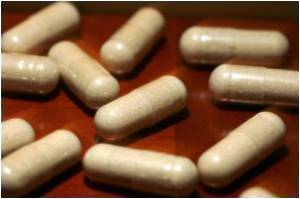In patients with chronic sinusitis, the regeneration of olfactory tissue requires some of the same inflammatory processes that create injury and loss of smell in the first place.

‘Chronic inflammation in sinusitis damages the sense of smell. Inflammatory responses are required for olfactory stem cell regeneration.’





"The kind of inflammation associated with immune system reactions to fight infection or injury appears to be part of a single system linked to tissue regeneration, so that normal healing of the olfactory system can't happen without it," says Andrew Lane, M.D., professor of otolaryngology-head and neck surgery at the Johns Hopkins University School of Medicine. "But more isn't always better, and continued inflammation will eventually have the opposite effect of killing olfactory neurons and inhibiting their regeneration, resulting in the loss of smell."Lane frequently sees patients with chronic sinusitis who've lost their sense of smell over time, and this has long been presumed to be due to the permanent destruction of olfactory tissue by inflammation and replacement with scar tissue. However, treating patients with oral steroids that suppress the immune system can bring back the sense of smell temporarily, suggesting that the olfactory tissue is still present in the nose, but that chronic inflammation plays a role in repressing its function. The researchers say that how this might occur has been a mystery.
In the process of testing inflammation's role in damaging olfactory tissue, researchers gave a chemical, methimazole, to mice that directly damages their olfactory tissue, waited a day, then treated them with a steroid injection. They then biopsied the tissue to measure how many new olfactory basal stem cells were growing and dividing (healing), using BrdU as a marker of replicating DNA. Compared to mice not given the steroids, mice given steroids had 45 percent fewer stem cells proliferating to replace the damaged ones in the tissue, suggesting that suppressing inflammation slowed olfactory stem cell regeneration.
Intrigued by this finding, the researchers then looked at levels of genes likely responsible for inflammation's effects on the olfactory stem cells of the mice given steroids versus those not treated. In mice not treated with steroids, they found double the gene product levels of the inflammatory molecules TNF-a and IL-1?. In the mice given steroids, they also detected the inflammatory messenger NF-kB in olfactory stem cells.
"Not only is the presence of NF-kB in olfactory stem cells unexpected," says Lane, "but the fact it gets turned on by inflammation shows communication occurring between the immune system and the olfactory system to initiate healing."
Advertisement
"The sense of smell is often underappreciated," says Lane. "People without a sense of smell have a greatly reduced quality of life, which may be accompanied by depression. They can't enjoy food because the sense of smell is necessary to appreciate flavors, and they can't sense dangerous or offensive odors."
Advertisement
Source-Eurekalert













